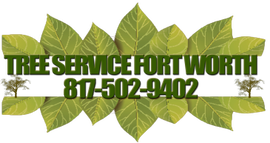Hypoxylon Canker Treatment Services in Pelican Bay, TX
In the serene town of Pelican Bay, Texas, a quiet menace is making itself known – the destructive fungal disease known as Hypoxylon Canker. This ruthless illness places a critical threat on the town's varied tree population, impacting the lush mellowness that defines Pelican Bay's beauty.
- Unraveling Hypoxylon Canker: Hypoxylon Canker arises chiefly from the activity of the Hypoxylon atropunctatum fungus. It brings damaging effects to a multitude of tree species, creating a widening hazard to the broad tree scape of Pelican Bay.
- Susceptible Tree Varieties: Oaks usually bear the brunt of Hypoxylon Canker's effects, but the fungus isn't choosy. It threatens an expansive range of tree species, casting a shadow of concern across Pelican Bay's remarkable foliage.
- Recognizing its Signs: Early identification of Hypoxylon Canker is vital to managing it. Signs such as reduced leaf production, darkening bark, and exposure of fungus-infested layers after bark removal signal the destructive presence of this disease.
- Disease Distribution: The spread of Hypoxylon Canker is mainly attributable to wind-driven fungal spores, typically targeting trees in stress, weakened by compromised soil conditions, injuries, or drought related conditions.
- Impact on Pelican Bay's Tree Population: The repercussions of Hypoxylon Canker result in gradual deterioration, often culminating in tree death. This damage not only tarnishes the aesthetic appeal of Pelican Bay but also threatens the ecological equilibrium.
- Preventive Actions Taken: In the absence of a definitive cure for Hypoxylon Canker, preventive care and rapid action are fundamental. Implementing holistic tree care, reducing environmental stressors, and promptly removing diseased trees and infected debris contribute significantly to these endeavors.
- The Crucial Role of Arborists: Arborists' expertise is crucial in the fight against Hypoxylon Canker in Pelican Bay. Their insights about disease management and containment methods can greatly help curb its effects.
- Protective Initiatives: Regular tree care practices, such as watering, appropriate fertilization, skilled pruning, and preventative actions against injuries, can boost a tree's resistance against Hypoxylon Canker.
- Community Involvement: The residents of Pelican Bay play a critical role in managing the Hypoxylon Canker crisis. Their vigilant participation can facilitate early disease identification, containment, and prevention.
In the face of the Hypoxylon Canker threat, Pelican Bay has a strong potential for triumph. Through the coordinated efforts of the community, professional arborists, and diligent adherence to preventive measures, the charm of Pelican Bay's verdant landscape can be safeguarded and even renewed.




